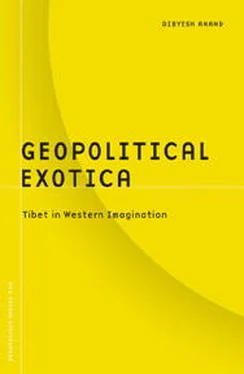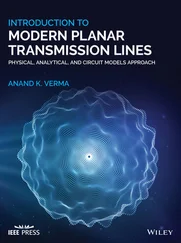Sautman, B., and Shiu-hing Lo. 1995. The Tibet Question and the Hong Kong Experience. Occasional Papers/Reprints Series in Contemporary Asian Studies, no. 2 (127). Baltimore: University of Maryland School of Law.
Schell, O. 2000. Virtual Tibet: Searching for Shangri-La from the Himalayas to Hollywood. New York: Metropolitan Books/Henry Holt.
Schick, I. C. 1999. The Erotic Margin: Sexuality and Spatiality in Alterist Discourse. London: Verso.
Schmitz, G. 2004. "Tibet's Position in International Law." In Exile as Challenge: The Tibetan Diaspora, ed. D. Bernstorff and H. Von Welck. New Delhi: Orient Longman.
Scholberg, H. 1995. Tibet! New Delhi: Indus.
Schroeder, J. E. 1998. "Consuming Representation: A Visual Approach to
Consumer Research." In Representing Consumers: Voices, Views and
Visions, ed. B. B. Stern. London: Routledge. Schwartz, R. D. 1996. Circle of Protest: Political Ritual in the Tibetan
Uprising. Delhi: Motilalbanarsidass Publishers. Scott, D. 1999. Refashioning Futures: Criticism after Postcoloniality.
Princeton, N.J.: Princeton University Press. Shakabpa, W. D. 1984. Tibet: A Political History. New York: Potala
Publications.
Shakya, T. 1991. "Tibet and the Occident: The Myth of Shangri-La." Special issue on Tibetan authors, Lungta. (April): 21-28.
____________________. 1993. "Whither the Tsampa Eaters?" Himal 6, no. 5: 8-11.
– -. 1996. "Introduction: The Development of Modern Tibetan Studies." In Resistance and Reform in Tibet, ed. R. Barnett and S. Akiner. Delhi: Motilalbanarsidass Publishers.
____________________. 1999. The Dragon in the Land of Snows: A History of Modern
Tibet since 1947. London: Pimlico.
– -. 2000. "Who Are the Prisoners?" Journal of the American Academy of Religion 69, no. 1: 183-89.
____________________. 2002. "Blood in the Snows: Reply to Wang Lixiong." New Left Review 15 (May-June): 39-60.
____________________. 2005. "The Prisoner: Review of Melvyn Goldstein et al., A Tibetan
Revolutionary." New Left Review 34 (July-August): 153-59.
Shangri-La Media Center. 2001. "New Advertising Campaign for Shangri-La." Press release, 9 April. Available at http://www.shangri-la.com/eng/ aboutus/media/press/article_34.htm(accessed 25 October 2001).
Shapiro, M. J. 1988. The Politics of Representation: Writing Practices in Biography, Photography, and Policy Analysis. Madison: University of Wisconsin Press.
Shapiro, M. J., and H. R. Alker, eds. 1996. Challenging Boundaries: Global Flows, Territorial Identities. Minneapolis: University of Minnesota Press.
Sharma, S. K., and U. Sharma, eds. 1996. Encyclopaedia of Tibet. New
Delhi: Anmol Publications. Sharpe, J. 1993. Allegories of Empire: The Figure of Woman in the Colonial Text. Minneapolis: University of Minnesota Press. Shaumian, T. 2000. Tibet: The Great Game and Tsarist Russia. Oxford:
Oxford University Press. Sheffer, G. 1986. "A New Field of Study: Modern Diasporas in International
Politics." In Modern Diasporas in International Politics, ed. G. Sheffer.
London: Croom Helm. Sheikh, A. G. 1991. "Tibetan Muslims." Tibet Journal 16, no. 4: 86-89. Shih, Chih-yu. 2003. Navigating Sovereignty: World Politics Lost in
China. London: Palgrave Macmillan. Shinoda, H. 2000. Re-Examining Sovereignty: From Classical Theory to
the Global Age. London: Macmillan. Shohat, E. 1992. "Notes on the 'Postcolonial.'" Social Text 31/32:
" -ii 3.
____________________. 1995. "The Struggle over Representation: Casting, Coalitions, and
the Politics of Identification." In Late Imperial Culture, ed. R. de la Campa, E. A. Kaplan, and M. Sprinker. London: Verso.
Siddiqui, A. 1991. "Muslims in Tibet." Tibet Journal 16, no. 4: 71-85.
Sjolander, C. T., and C. T. Cox, eds. 1994. Beyond Positivism: Critical Reflections in International Relations. Boulder, Colo.: Lynne Rienner.
Smith, A. D. 1991. National Identity. London: Penguin.
Smith, S. 2000. "The Discipline of International Relations: Still an American Social Science?" British Journal of Politics and International Relations 2, no. 3: 374-402.
Smith, S., K. Booth, and M. Zalewski, eds. 1996. International Theory: Positivism and Beyond. Cambridge: Cambridge University Press.
Smith, W. W. 1996. Tibetan Nation: A History of Tibetan Nationalism and Sino-Tibetan Relations. Boulder, Colo.: Westview Press.
Snyder, R. S. 1999. "The U.S. and Third World Revolutionary States: Understanding the Breakdown in Relations." International Studies Quarterly 43, no. 2: 265-90.
Sperling, E. 2004. The Tibet-China Conflict: History and Polemics. Washington, D.C.: East-West Centre. Available at http://www.eastwestcenterwashington.org/Publications/sperling.pdf(accessed 10 August 2006).
Spivak, G. C. 1988. "Can the Subaltern Speak?" In Marxism and the Interpretation of Culture, ed. C. Nelson and L. Grossberger. Urbana: University of Illinois Press.
____________________. 1990. The Postcolonial Critic-Interviews, Strategies, Dialogues.
Edited by S. Harasym. London: Routledge.
____________________. 1993. Outside in the Teaching Machine. London: Routledge.
____________________. 1997. "Poststructuralism, Marginality, Postcoloniality and Value."
In Contemporary Postcolonial Theory: A Reader, ed. P. Mongia. London: Arnold.
____________________. 1999. A Critique of Postcolonial Reason: Towards a History of the
Vanishing Present. Cambridge, Mass.: Harvard University Press.
Spufford, F. 1996. I May Be Some Time. London: Faber and Faber.
Spurr, D. 1993. Rhetoric of Empire: Colonial Discourse in Journalism, Travel Writing, and Imperial Administration. Durham, N.C.: Duke University Press.
Steans, J. 1998. Gender and IR: An Introduction. Cambridge, England: Polity Press.
Steedman, C. 1998. "The Space of Memory: In an Archive." History of the Human Sciences 11, no. 4: 65-83.
Strang, D. 1996. "Contested Sovereignty: The Social Construction of Colonial Imperialism." In State Sovereignty as Social Construct, ed. T. J. Biersteker and C. Weber. Cambridge: Cambridge University Press.
Strom, A. K. 1997. "Between Tibet and the West: On Traditionality, Modernity, and the Development of Monastic Institutions in the Tibetan Diaspora." In Tibetan Culture in the Diaspora: Papers Presented at a Panel of the 7th Seminar of the International Association for Tibetan Studies, Graz, 1995, ed. F. J. Korom. Vienna: Verlag Der Oster-reichischen Akademie Der Wissenschaften.
Suleri, S. 1992. Rhetoric of English India. Chicago: University of Chicago Press.
Sullivan, Z. T. 1993. Narratives of Empire: The Fictions of Rudyard
Kipling. Cambridge: Cambridge University Press. Sylvester, C. 1993. "Reconstituting a Gender Eclipsed Dialogue." In Global
Voices: Dialogues in International Relations, ed. J. Rosenau. Oxford:
Westview Press.
____________________. 2002. Feminist International Relations: An Unfinished Journey.
Cambridge: Cambridge University Press.
Thargyal, R. 1997. "Is There a Process of Secularization among the Tibetans in Exile?" In Tibetan Culture in the Diaspora: Papers Presented at a Panel of the 7th Seminar of the International Association for Tibetan Studies, Graz, 1995, ed. F. J. Korom. Vienna: Verlag Der Oster-reichischen Akademie Der Wissenschaften.
Thupten Samphel. 2000. Tibetan Government-in-Exile's Department of Information and International Relations. Personal interview, January, Dharamsala.
Tibetan Book of the Dead: Liberation through Understanding in the Between. 1998. Trans. R. A. F. Thurman; composed by Padma Sambhava; discovered by Karma Lingpa. New Delhi: HarperCollins.
Tibet Journal. 1995. Special issue, 20, no. 3.
Tickner, J. A. 1992. Gender in International Relations: Feminist Perspectives on Achieving Global Security. New York: Columbia University Press.
Читать дальше












